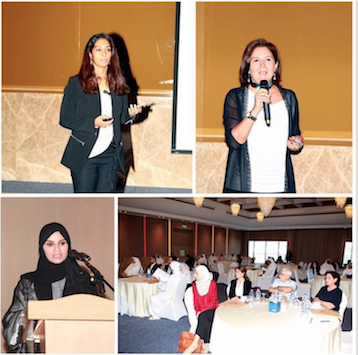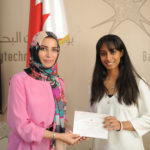Bahrain hosts its Opening Workshop on the Cartagena Protocol

Ms. Reem Al Mealla, presenting an overview on the project which aims at preparing the third national report and action plan of the Kingdom of Bahrain on the Cartagena Protocol on Biosafety. Photo Credit: BNA news
Bahrain kicked off its opening national workshop which aims to develop its Third National Report on the Implementation of the Cartagena Protocol on Biosafety on the 8th of September 2016 at the Downtown Rotana Hotel.
The workshop marked the first of its kind regarding the protocol in the Kingdom and was organized by the Supreme Council for Environment (SCE) with the generous financial support of the Global Environment Facility (GEF) and was supported by the United Nations Environment Programme – Regional Office of West Asia (UNEP-ROWA)
The one day stakeholder engagement workshop brought together relevant participants from across various sectors and groups which includes the public and private sectors along with academic institutions, youth and members of civil society with a focus on those involved in the agricultural and pharmaceutical industries and sector.
The workshop aimed at introducing and engaging all stakeholders in the development process of preparing the national biosafety report in the Kingdom of Bahrain through a series of discussions and consultations. The interactive sessions addressed various topics including baseline scoping and screening on available data which are crucial to the development process all of which is being prepared by national and international consultants along with the SCE. Even though this is titled as the third national biosafety report, it is Bahrain’s first to the UN Convention on Biological Diversity (CBD) since its ratification in 2011.
The Protocol aims at contributing towards ensuring an adequate level of protection in the field of the safe transfer, handling and use of living modified organisms (LMOs) resulting from modern biotechnology that may have adverse effects on the conservation and sustainable use of biological diversity, taking also into account risks to human health, and with specific focus on transboundary movements.
Following the development of Bahrain’s third national report, stakeholders shall convene at a second national workshop to be organized by the SCE in November to work on the preparation of an action plan for the Implementation of the Cartagena Protocol on Biosafety nationally.
 Previous Post
Previous Post Next Post
Next Post